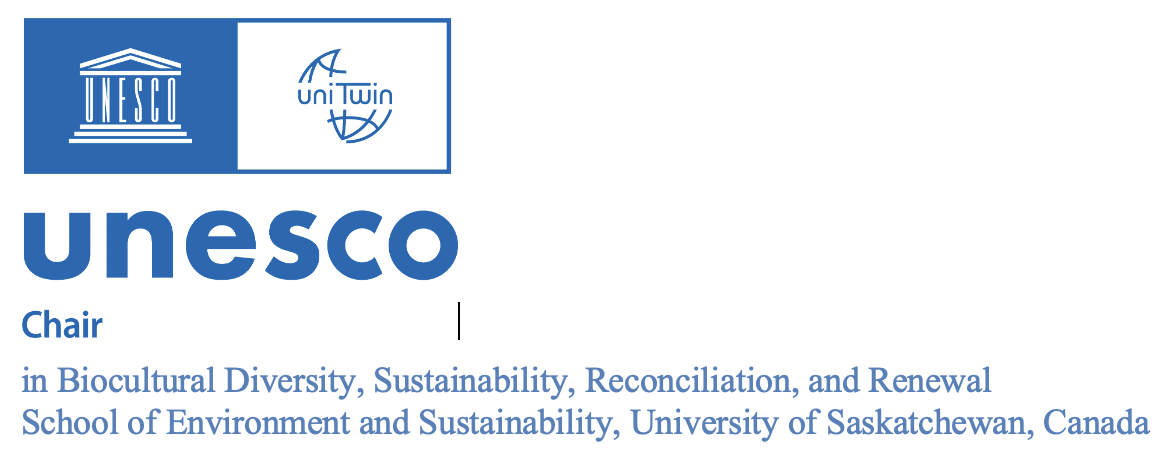Our UNESCO Chair Partners
The work and impact of this Chair is based upon collaboration with a network of partners, individuals, organizations, and communities, working to advance sustainability.
Gabriela Lichtenstein
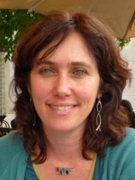
Gabriela's expertise lies in conservation and sustainable use of wildlife in Patagonia and the high Andes, with a particular focus on the distribution of benefits along the commodity chains and community participation in decision making. Her interest in articulating research results with policy led her to Chair IUCN SSC South American Camelid Specialist Group and collaborate with CITES, FWS, the Vicuña Convention and IPBES. She also took part in several Indigenous forums aiming to strengthen indigenous participation and is currently a member of IPBES ILK Liaison group for the Monitoring Assessment.
Gabriela holds a research position at CONICET, works at Instituto Nacional de Antropología y Pensamiento Latinoamericano (INAPL) in Buenos Aires, Argentina.Contact: lichtensteingabriela@gmail.com
Loading...
Holly Worthen

Holly’s interdisciplinary and community-engaged research focuses on the racialized and gendered aspects of transnational Indigenous community development in both Mexico and the United States. Her work explores how certain economic and political projects—including migration, the production of commodity agriculture, and women’s rights agendas—reconfigure questions of labor, belonging, and value in transnational spaces. She is a professor at the Sociology Institute of the Autonomous University of Benito Juárez in Oaxaca, Mexico. She can regularly be found hiking in the mountains of Oaxaca with the street dogs she rescues and fosters.
Contact:hworthen@gmail.com
Loading...
Inger Elisabeth Måren
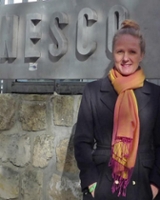
Dr. Inger holds PhD in Plant Ecology from the University of Bergen (Norway). She is a professor in applied ecology at the Department of Biological Sciences of the same university. Since 2017, she is the Chair of the UNESCO Chair on Sustainable Heritage and Environmental Management - Nature and Culture.
As part of her UNESCO Chair's activities she works in several projects that focus on the dynamics in coupled human and natural systems, including sustainable development, natural resource management, agrobiodiversity, sustainable land use, ecosystem services, agroecology, and food security. She works in collaboration with colleagues and partners in Europe, Asia, North-America and Africa.
Contact: inger.maaren@uib.no
Loading...
Instituto Boliviano de Investigación Forestal
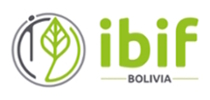
En IBIF Bolivia, promovemos la conservación de los bosques mediante una gestión sustentable y territorial que incluya el desarrollo local, la resiliencia climática y el manejo responsable de los recursos naturales y la biodiversidad, bajo un enfoque de género y generacional. Trabajamos de la mano con comunidades indígenas y actores locales para desarrollar soluciones localmente apropiadas que mejoren el cuidado y conservación de sus territorios, mediante la promoción de una gobernanza comunitaria y policéntrica; la incidencia en la formulación de políticas públicas basadas en información técnica precisa y la asistencia especializada.
Contact: ibif@ibifbolivia.org.bo
Marlene Soriano
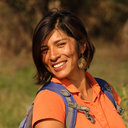
Marlene is the Program Director for Inclusive Socioeconomic Development at the Instituto Boliviano de Investigación Forestal. With a focus on Bolivian community forestry, she facilitates research, capacity-building, discussions and collaboration amongst local stakeholders to optimize harmony between social well-being and economic and ecological performance. In this endeavor, Marlene collaborates with scientists and local experts and combines social and biological research methods to support innovative solutions to daily struggles faced by forest communities. By using participatory research, rights-based and gender transformative approaches, she aims to support the development of well-thought-out and collaboratively designed strategies to influence local and public policies and thus contribute to the sustainable and integral management of socio-ecological systems.
Contact:msoriano@ibifbolivia.org.bo
Loading...
Alicia D. Barraclough

Alicia D. Barraclough is a researcher associated to the University of Bergen UNESCO Chair Sustainable heritage and environmental management. Her work focuses on the power of territorial sustainability designations to catalyze collaboration for sustainability objectives. An example of these are UNESCO Biosphere Reserves, which she studies as testing sites for sustainability learning and earth stewardship.
She works as a sustainability scientist at the intersection between the natural and social sciences, interested in progressing inter- and transdisciplinary research which is fair and equitable for people and land. Her work is informed by social-ecological systems scholarship and complex adaptive system thinking. Her research areas include land-use change, biodiversity conservation, nature valuation and justice, and adaptive co-management implementation. She also has a strong interest in group process work, facilitation, young stakeholder concerns and political ecology. She was named spokesperson for UNESCO's Man and Biosphere (MAB) programme's 50th anniversary by Dr. Jane Goodall in 2021.
Alicia is currently the coordinator of a Biodiversa+ Consortia, Become, looking at effectiveness of Biosphere Reserves, and PI for the Norwegian research council project ACTIONABLE.
Contact: Alicia.Barraclough@uib.no
Loading...
Andrés Moreira Muñoz
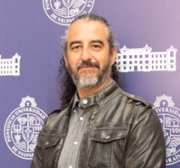
Dr. Andrés holds a PhD in Natural Sciences from the University of Erlangen-Nürnberg (Germany) and is a geographer from the Universidad Católica de Chile. Currently, he is the lead researcher and Director of the Biogeography and Sustainable Territorial Systems Lab (BIOGEOLAB) at the Pontificia Universidad Católica de Valparaíso (Chile).
The BIOGEOLAB team, which consists of eighteen members, aims to enhance the understanding of the connection between social and environmental dimensions. In their work, the lab employs transdisciplinary approaches that integrate methods from both the natural and social sciences, as well as insights from local and traditional worldviews. The goal is to engage in and contribute to participatory processes that promote respectful relationships between humans and the more-than-human world.
Contact:andres.moreira@pucv.cl
Loading...
Canadian Biosphere Regions Association
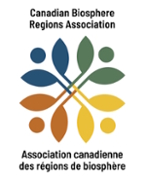
The Canadian Biosphere Regions Association (CBRA) is both an organization and the collective voice of Canada’s 19 UNESCO-designated biosphere regions.
We work at the national level to promote the collective impact of biosphere regions across the country. We facilitate connections, provide support, and promote their local work, raising their profile and scaling their collective impact. We also support operational capacity building and knowledge-sharing opportunities within the network.
Contact: info@biospherecanada.ca
Clayoquot Biosphere Trust
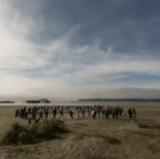
The Clayoquot Biosphere Trust (CBT) is a registered charity based on the west coast of British Columbia, Canada. Established in 2000, CBT is the only organization in Canada that is both a UNESCO biosphere and a community foundation. They pair this spirit of community with the power of a global presence to bring more people together for a shared understanding. CBT also oversees the Clayoquot Sound Biosphere Region designation, one of Canada’s 19 UNESCO biospheres. CBT's team works to strengthen the development of all citizens, communities, and the ecosystems on which we all depend for a future we can all be proud of.
Estudios Rurales y Asesoría Campesina (ERA A.C.)
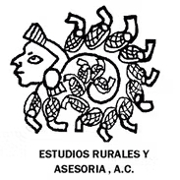
En estudios Rurales y Asesoría Campesina, buscamos aportar a la búsqueda de nuevos enfoques para el desarrollo de las comunidades rurales. Entendemos el "desarrollo" como el "despliegue" o "desdoblamiento" de las ideas de las comunidades rurales para mejorar sus condiciones de vida. Para eso, facilitamos los procesos comunitarios de reflexión colectiva y el intercambio de ideas a todos los niveles.
Nuestra experiencia nos ha mostrado que cuando las comunidades rurales tienen pleno control sobre sus recursos naturales, se logra la sostenibilidad ambiental. Esto se debe a una razón simple pero poderosa: todos tratamos de conservar nuestro medio de vida. Cuando las comunidades dependen de sus bosques, tierras, agua, flora y fauna y se les reconoce el derecho a manejarlos, se convierten en las guardianas más efectivas, como lo muestran muchos estudios nuestros y de otras entidades.
Francisco Chapela
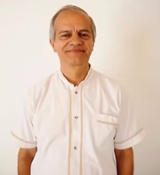
Ha realizado estudios en la Universidad Autónoma Metropolitana, la Univeridad Iberoamericana, El Colegio de México y la Universidad Nacional Autónoma de México. Su trabajo se ha centrado en la interacción entre las comunidades humanas y los bosques, con un enfoque particular en cómo las prácticas tradicionales y locales pueden coexistir con la conservación ambiental. Ha sido un firme defensor de los derechos de las comunidades indígenas y campesinas, argumentando que su conocimiento ancestral es fundamental para la preservación de la biodiversidad. Ha desempeñado un papel importante en la formulación de políticas públicas relacionadas con el medio ambiente en México. Ha colaborado con diversas organizaciones no gubernamentales y ha participado en proyectos internacionales destinados a la protección de los bosques y la promoción del desarrollo sostenible.
Fermín Sosa Pérez
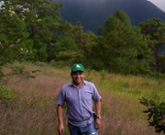
Fermín actualmente trabaja como docente universitario, impartiendo temas relacionados al desarrollo local y regional, con énfasis en el contexto socioambiental de los territorios que habitan las comunidades indígenas del estado de Oaxaca, México. Es de su interés, desarrollar proyectos de investigación respecto a la dinámica de los paisajes y la funcionalidad territorial.
Fermín works as a university teacher. He teaches on topics related to local and regional development, with an emphasis on the socio-environmental context of the territories inhabited by indigenous communities in the state of Oaxaca, Mexico. He is interested in developing research projects on landscape dynamics and territorial functionality.
Contact: shoobilatzi@gmail.com
José Antonio Sierra Huelsz
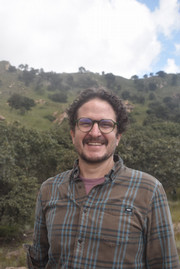
Antonio is currently a postdoctoral researcher and lecturer at the Universidad de Guadalajara and collaborates with ERA A.C. He holds a BSc and MSc in Biology and Ecology from the Universidad Nacional Autónoma de México, and a PhD in Forest Resources and Conservation with a concentration in Tropical Conservation and Development from the University of Florida.
He is interested in using multiple disciplinary lenses and biocultural approaches to study and collaborate with community-based forest management initiatives in Mexico and beyond. His research and collaboration interests include community forest management, governance and law, forest–agriculture interfaces, agroforestry and agrobiodiversity, historical approaches to resource management, and environmental justice—particularly the recognition of traditional ecological knowledge in forest management contexts.
Antonio has worked for the National Institute of Anthropology and History (INAH, Mexico) and Universidad Veracruzana, collaborated with NGOs and forest producer organizations, and has been a member of the Mexican Non-Timber Forest Product Network, the Iniciativa Bosques para el Buen Vivir, and People and Plants International.
Antonio es actualmente investigador postdoctoral y profesor de asignatura en la Universidad de Guadalajara y colabora con ERA A.C. Es biólogo y maestro en ciencias biológicas por la Universidad Nacional Autónoma de México, y Dr. en Recursos Forestales y Conservación con especialización en Conservación y Desarrollo Tropical por la Universidad de Florida.
Le interesa utilizar diversas aproximaciones disciplinarias y enfoques bioculturales para estudiar y colaborar con iniciativas de manejo forestal comunitario en México y otros países. Sus intereses de investigación y colaboración incluyen el manejo y la gobernanza comunitaria y la normatividad forestal, las interfaces entre el bosque y la agricultura, la agroforestería y la agrobiodiversidad, los enfoques históricos para el manejo de recursos y la justicia ambiental, en particular el reconocimiento del conocimiento ecológico tradicional en contextos de manejo forestal.
Antonio ha trabajado para el Instituto Nacional de Antropología e Historia (INAH, México) y la Universidad Veracruzana, ha colaborado con ONG y organizaciones de productores forestales, y ha sido miembro de la Red de Productos Forestales No Maderables (México), la Iniciativa Bosques para el Buen Vivir y People and Plants International.
Contact: jashpat@gmail.com
Liette Vasseur
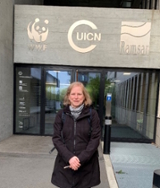
Dr. Liette Vasseur works at the nexus of several disciplines, allowing her to develop transdisciplinary research that joins issues related to ecosystem management, sustainable agriculture, climate change and rural/ coastal communities. Aspects of gender and cultural identities are crucial in her research in Canada, China, Ecuador, Benin and Morocco. Stewardship also means knowledge transfer and translation to ensure accessibility of the research to all communities.
Michelle María Jazmín Sánchez Luja

Especialista en la gestión y acompañamiento para la incubación y fortalecimiento de Empresas Forestales de Economía Social en comunidades rurales. Implementa técnicas y métodos participativos para la gestión sostenible y la gobernanza de territorios comunes y ecosistemas en favor de la conservación, restauración y protección ambiental en comunidades del sur y sureste de México.
Michelle is a specialist in management and collaboration for the incubation and strengthening of Social Economy of Forestry Enterprises in rural communities. She implements participatory techniques and methods for the sustainable management and governance of communal territories and ecosystems. Her work seeks to support environmental conservation, restoration, and protection in communities in southern and southeast Mexico.
Contact: indayuac@gmail.com
Mistawasis Nehiyawak - Community Partner
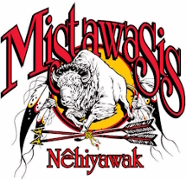
Mistawasis Nehiyawak is a First Nation located in central Saskatchewan, Canada. Like our ancestors, we find strength through partnership, alliance and friendship with those in our traditional territory; this includes neighboring communities, various levels of government, institutions and non-government organizations.
Contact: contact@mistawasis.ca
Redberry Lake Biosphere Region
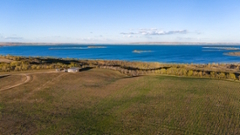
The Redberry Lake Biosphere models sustainable development solutions that preserve pathways for people and wildlife to coexist and thrive together. Through our new Research Centre and demonstration plots, we welcome researchers and visitors from across the world to study and learn about species at risk, sustainable agriculture, climate adaptation and more. Through our Interpretive Centre and Glamping Domes, we welcome tourists from across the world to experience an endless expanse teaming with hundreds of species of wildlife thriving alongside rural prairie towns. Through our Native Tree and Plant Nursery Roots of Renewal, we are planting 100,000 trees in addition to various native shrubs, grasses and other rare plants across the region each year. Through our land-based education we are partnering with Indigenous Communities to inspire the next generation what living with the land truly means. Through these endeavours and more our goal is to remind humans of all ages to see themselves as an integral part of nature. One that can work alongside other species and solve global issues by strengthening our bonds with the nature in our backyards.
Sheona Shackleton
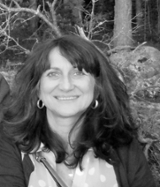
Teacher (lecturer) and researcher in the sphere of human-environment interactions focusing on natural resource management, livelihoods, vulnerability and adaptation in a changing world. Specialties: Rural livelihoods and vulnerability, natural resource management, conservation and development, climate change adaptation, natural resources and poverty, natural resource commercialisation, non-timber forest products, ecosystem services and livelihoods, transdisciplinarity, and knowledge co-production.
Contact: sheona.shackleton@uct.ac.za
TRANSECTS - Eureta Rosenberg
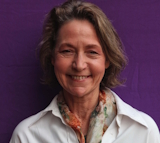
Eureta Rosenberg is the country co-director for TRANSECTS in South Africa and leads the international Monitoring, Evaluation and Learning Team. She is a Full Professor and Chair of Environment and Sustainability Education in the Environmental Learning Research Centre at Rhodes University, South Africa, where she is also the Dean of the Education Faculty and the Chair of the Faculty Research Ethics Committee. She has a transdisciplinary background with an M.Sc. in Medical Science, an Honours in Psychology, a Masters in Environmental Education and a PhD (1995) that focussed on transformative research methodology. Her scholarly interests include evaluation that supports organisational learning, strategic planning and organisational learning, research ethics, and skills for green work. Prof Rosenberg supervises M.Ed. and PhD students and Post-Doctoral Fellows in these and related research areas.
TRANSECTS - Heike Walk
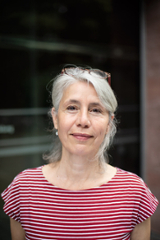
Heike Walk is a Professor for Transformation Governance at the Faculty of Forest and Environment and for Transformative Innovation and Service Learning at the Faculty of Sustainable Business at the Eberswalde University for Sustainable Development. She holds a PhD in Philosophy from the “Freie Universität Berlin” and a habilitation in political science from the “Westfälische Wilhelms-Universität Münster”. The main research topics are citizen participation, civil society, multi-level governance, sustainable development and transformative Science.
From 2015 until 2016, she was director of the Environmental Policy Research Center at Freie Universität Berlin and of the Berlin Institute for Protest and Social Movement Studies. In addition, she was deputy managing director at the Center for Technology and Society at the Technical University of Berlin. There, she established several research areas (participation, governance, social movements, climate and energy). Since 2003, she has been co-editor of the book series Civil Society and Democracy at the publishing house “Springer Fachmedien”.
Iain Davidson-Hunt
Professor, Natural Resources Institute, University of Manitoba


